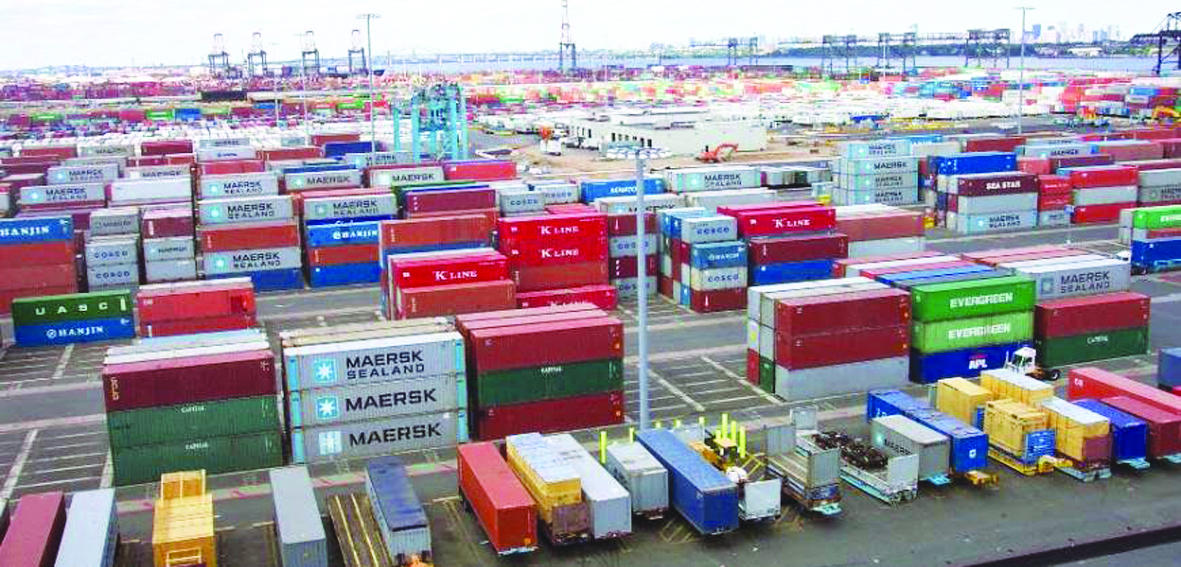 The Nigerian Shippers’ Council (NSC) is set to enforce the 48-hour clearance of goods at the ports to make them competitive.
The Nigerian Shippers’ Council (NSC) is set to enforce the 48-hour clearance of goods at the ports to make them competitive.
Mr Hassan Bello, Executive Secretary of the Shippers’ Council is committed towards ensuring speedy clearance of goods at the ports. Against this background, the ports economic regulator has come up with initiatives to end the bottlenecks in the process of cargo clearance such as corrupt practices among freight forwarders and government agencies at the nation’s seaports.
Ms Azuka Ogo, Director, Consumer Affairs Department of Nigerian Shippers’ Council (NSC), said that to achieve this feat, the council has been collaborating with many local and international organisations to eliminate corruption and bottlenecks associated with Customs processes and clearance of goods at the nation’s seaports.
According to her, the council has equally held series of conferences to proffer lasting solutions to the problems facing port users. She said that the council would establish a port operation tool within the Single Window System to boost ports’ operations. The council also intends to set up a visible complaints desk or mechanism to fast-track cargo clearance and tackle corrupt malpractices at the nation’s seaports.
“The NSC has been taking note of the outcome of a survey which shows that a large number of government officials request facilitation of payments in the ports.The request varies from port to port and the survey also shows refusals to pay, delays and allegations of irregularities of documentation or operations between 2014 and 2015,” she said.
Pa Lamin Beyai, the Country Director, United Nations Development Programme (UNDP), described the initiatives by the Shippers’ Council as a step in the right direction. According to him, there is need to strengthen accountability in revenue generating institutions to avoid sharp practices in government agencies. He expressed the preparedness of UNDP to assist NCS in strengthening the compliant mechanisms to meet international standard.
The UNDP capacity to successfully stamp out corruption in conjunction with the NSC is not in doubt with its level of capacity at both the Federal and State levels for coordination of law reforms and service delivery for justice in the sector. To eradicate corruption in Nigeria, the UNDP had introduced Corruption Risk Assessment (CRA) in 2011 in collaboration with some organisations in Nigeria such as the Bureau of Public Procurement (BPP), Independent Corrupt Practices and other Related Offences (ICPC) and the Technical Unit for Governance Action Reform (TUGAR).
The UNDP is also involved in the introduction of corruption risk assessment at the Lagos seaports. “At the request of Maritime Anti-Corruption Network (MACN), corruption risk assessment was conducted in six Nigerian ports, including Tin Can, Apapa, Warri, Onne, Port Harcuort and Calabar ports.“The survey has given opportunity to newly-certified assessors with the main purpose of intervention to improve CRA proposal for integrity in the port sector,” Beyai said.
In 2013, Corruption Risk Assessment (CRA) report released by the ICPC; the TUGAR and the BPP with the support of UNDP on Nigerian ports revealed that an importer or agent will require a minimum of 79 signatures of government officials to clear his/her goods at the nation’s gateways.
By Pita Ochai


